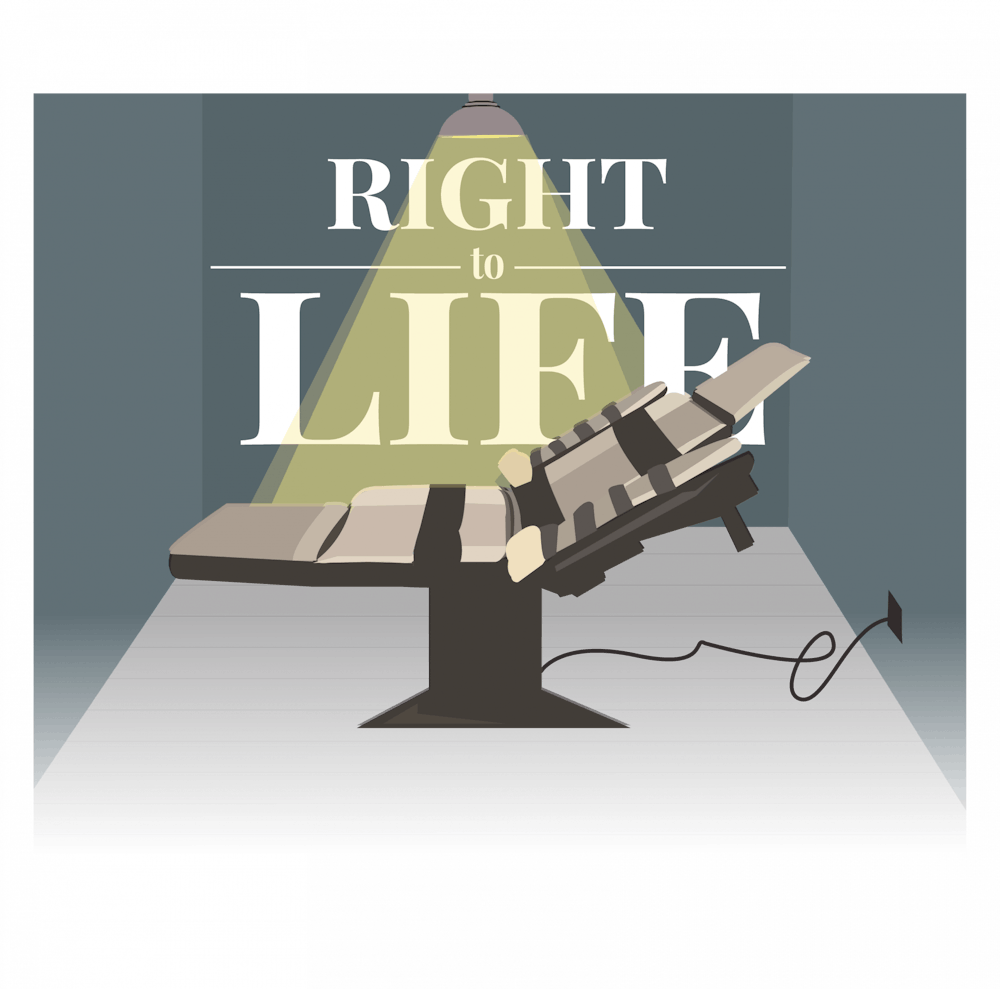
Katie Catterall is a sophomore journalism major and writes “In Between the Lines" for The Daily News. Her views do not necessarily reflect those of the newspaper.
I was raised with the belief that once you are brought into this world, you have a purpose and are deserving of life. The morals that have been instilled in me since birth tell me laws like the death penalty should cease to exist, but morality can’t necessarily be backed up by fact.
I wasn’t taught “an eye for an eye.” Rather, I was taught that human beings are deserving of love and kindness, not some twisted form of revenge that is the death penalty. Life is so fragile already, but imagine the fragility that comes with granting an institutional body the power to decide whether someone lives or dies based on the severity of their crime.
It is immoral to take someone’s life through capital punishment — regardless of what they have done. Human beings do not have the right to decide when it is time for someone to die.
Former Washington State Supreme Court Justice Robert Utter was an avid opponent of the death penalty. He made it clear how he felt about the law allowing human beings to decide when someone lives or dies, stating in his resignation letter that “no human is wise enough” to make such a decision. It places too much power in the hands of government officials while leaving minor criminals under control of fear.
The United States uses the death penalty as a means of punishment. Amnesty International records that 106 countries have abolished capital punishment. Yet, the United States remains an outlier to the developed nations that have already abolished the death penalty.
It is imperative that the United States join the 70 percent of the world that has already abolished the death penalty.
The issue of morality is brought up a lot in society, but what about in relation to the law? Laws have a responsibility to try to reflect a nation’s morality, especially in a country like the United States that is supposed to stand for the ideal of freedom. People subjected to the death penalty don’t have a choice when getting condemed — innocent or not. It is not moral to take someone’s life and, therefore, their decisions from them. How are you any better than the criminal if you also have blood on your hands?
The Eighth Amendment states, “Excessive bail shall not be required, nor excessive fines imposed, nor cruel and unusual punishments inflicted.” The death penalty is cruel and unusual punishment because you are deciding it is a prisoner’s time to die.
Politicians peddle the idea that the death penalty prevents crime and reduces homicide rates by striking fear in criminals. This isn’t true — violence breeds violence. A study by the Stanford Law Review compared the amount of violence in states with capital punishment versus those without and found no deterrent effect. They found that states with the death penalty actually have higher murder rates than states without the death penalty.
Innocent people have fallen victim to capital punishment. For example, Cameron Todd Willingham was executed in Texas in 2004 for the murder of his three daughters in a house fire. It wasn’t until after his execution that officials admitted there was no evidence of arson. Willingham joins countless others who have had their lives stolen at the hands of capital punishment. The Death Penalty Information Center reports that more than 170 people have been killed since 1973 for crimes they didn’t commit.
Even as the death penalty declines, racial disparities persist. The Death Penalty Information Center also reports that, since 1977, 308 black defendants have been victims of capital punishment for murders involving at least one white victim. In comparison, 34 white defendants were executed for murders involving at least one black victim. We can’t continue to support a system that targets people of color with execution for the same crimes white people are committing with lesser punishment.
No crime should be worthy of a death penalty.
It’s time we, as a nation, abolish this outdated and cruel method of punishment that is the death penalty. We must join the majority of the world in abolishing capital punishment — if not for the simple immortality of this system, then for the taxpayer money it takes to put someone on the journey of death row. According to the Death Penalty Information Center, a death penalty case costs 70 percent more than a non-death penalty case. Death penalty cases also divert resources from other areas, such as crime prevention, drug treatment resources and mental health treatment because of how much it costs for appeals, trials and convictions of those on death row. We are spending taxpayer dollars to end people’s lives when we could be investing this money in services that benefit our citizens.
The evidence outlines a very dark reality — the death penalty doesn’t deter crime. The death penalty costs more money than life in prison for a criminal, and it diverts resources from important social programs. The death penalty has ended the lives of innocent people and still runs the risk of doing so today. The death penalty is racially biased and contributes to systemic racism.
This is the case against capital punishment. This is why it is morally wrong — at the core of the issue, it is morally wrong to decide when someone lives or dies. We can’t fight crime by committing crime ourselves. Real change comes when we realize the “eye-for-an-eye” method truly does end up making the whole world blind.
Contact Katie Catterall with comments at khcatterall@bsu.edu.





